Daniel Goleman's interview was recorded on December 10, 2007, at the CASEL Forum, an event in New York City that brought together seventy-five global leaders in education and related fields to raise awareness about social and emotional learning (SEL) and introduce important scientific findings related to SEL.
Goleman talks from a historic perspective examining studies that aimed to deal with a range of social learnings. Some programs worked and others didn't, so the study searched for common themes in the programs that worked. What they found was the programs that taught self-awareness, self-regulation, empathy, sound decision making had overwhelmingly higher success rates.
It seems to me that when chess is taught in a whole class/whole curriculum approach that we have a forum that supports many of these types of learnings.
The video takes a little while to download......so be patient!
"Originally published 2/27/08 © Edutopia.org; The George Lucas Educational Foundation."
A numeracy, engagement and well-being initiative of the Mt. Alexander cluster of schools, originally funded by Innovations & Excellence. A partnership supported by Castlemaine Chess Club, Schools of the Mt. Alexander Cluster, Maryborough Education Centre, & University of New England- NSW.
01 November, 2008
15 September, 2008
3rd Mt. Alexander Cluster Chess Tournament.
Schools chess is 'big' in Castlemaine. And when they built the Old Castlemaine Gaol 150-odd years ago, nobody thought one day it would be full of schoolchildren playing the Royal Game.
A record number of 270 students from far and wide participated in the third annual Mt. Alexander Cluster Primary Schools Chess Tournament held at the old Castlemaine Gaol.
The event is officially the largest regional schools chess tournament held in Australia.
Castlemaine Primary School won the event for the second successive year, with new entry the Maryborough Education Centre (MEC) surpassing all expectations producing the overall individual winner.
For the second year running Ross Allengame's class from Castlemaine Primary won the A_Division and will be representing the cluster at the State Finals in October. MEC finished second and Castlemaine North finished third in the elite category.
St. Mary's won the B-Division, from Winters Flat and Castlemaine Primary while Maryborough Education Centre won C-Division from Castlemaine Primary and Castlemaine North.
Other participating schools included Winters Flat, Castlemaine North, Castlemaine Primary, Chewton, Campbells Creek, Newstead, Taradale, Elphinstone, Maldon, Guildfrod, St. Mary’s, and Harcourt Valley.
And a week earlier, 75 students from Daylesford, Kyneton, Maryborough and Castlemaine ventured to our CSC Junior Campus to do battle for bragging honours in the secondary school version.
Students from the Junior Campus, under the guidance of schoolteacher Mark Johansson, filled six of the first seven placings in that event.
The Chess-Squared Program sees community tutors deliver chess tuition in classtime. It started in the Castlemaine schools three years ago, has won a State Numeracy Award, last year delivered a Keynote Presentation at an International Conference in Scotland, and has a research component auspiced by James Cook University.
Castlemaine Primary has won eight places and MEC have secured 5 places in the State Finals. The Castlemaine Secondary College through strategic tournament play throughout the year has a maximum of 10 players representing the region at the State Finals in October
08 September, 2008
Report from CSC Jnr. Campus Tournament

They came from far and wide. About 100 Students from Daylesford, Kyneton, Maryborough and local primary schools came to do battle for bragging honours at the annual CSC (Castlemaine Secondary College) Chess Championship.
All of the students seemed to handle the rigors of the tournament day really well. They were highly motivated and played some really exciting games. It was no place for the faint hearted and a wholesome competitive spirit permeated the proceedings.
The tournament included three primary schools whose students often matched it with the secondary school students and never flinched when confronted by stronger more mature opponents. Their attitude was 'bring it on'!
CSC junior campus's team consisting of Joel Vearing, the outright tournament winner, Patrick Kelly second, Zac Gillet fourth, Jun Jun Robins fifth, Jesse Cameron and Matt Morgan sixth, and Max Nachman eigth, all of whom formed the nucleaus of last years all conqueroring CSC team that went on to become sixth in the Australian national titles, dominated the tournament.
All the students had good attitudes and were resilient in the face of defeat taking their losses in their strides.
Castlemaine Primary School won the primary school section and finished equal second over all. Matthew Hunter, Jordan Furlong, Oscar Black, Kaleb McBride, and Iona Moller all doing exceptionally well ,and showing that once again Castlemaine Primary School will be a formidable force in the upcoming Mt Alexander School Cluster Tournament to be held on the 15th of September.
The positive feed back we had for the day was awesome, and we all extend our hearty appreciation to Mark Johansson for his hard work and sacrifice in making it happen.
regards
Harry
30 August, 2008
TOURNAMENT TIME

When they were building the Old Castlemaine Gaol 150-odd years ago, nobody thought the place would one day be filled with young schoolchildren doing battle over chess boards.
Monday 15TH September sees the third annual Mt. Alexander Cluster Schools Chess Tournament at the iconic Castlemaine landmark.
It is expected 300 primary school students will converge on the venue, including first-timers from St.Mary’s Primary School (Castlemaine), and a group venturing over from the Maryborough Education Centre.
Other primary schools represented include Winters Flat , Campbells Creek, Yapeen, Guildford, Elphinstone, Taradale Chewton, Castlemaine Primary, Castlemaine North, Harcourt Valley, Maldon, and Newstead.
The event is the culmination of a program run by schools in the Mt. Alexander cluster that sees tutors from the local community venture into classrooms delivering the finer points of chess during term2 &3.
Program convenor, Harry Pouton says: “It’s a successful partnership between the tutors and the classroom teachers”.
Research conducted by James Cook University indicates students take their classroom skills into the home and that facilitates chess play within the family.
From an education perspective the program has a number of benefits. It fosters effective links that strengthen the partnership with home and school.
Among other things, the passion and expertise of the tutors has an enabling effect on student learning, and combining the program with a numeracy focus has seen under-achieving students find success at school.
The program was invited last year to deliver a Keynote Presentation at an International Conference at Aberdeen University Scotland, where it was considered a unique and outstanding example of schools building social capital within their local communities.
27 July, 2008
OVER THE BOARD WITH HARRY: The work of Fernando Moreno

VELs Thinking Domain says “Our world and the world of the future demand that all students are supported to become effective and skilful thinkers.” http://vels.vcaa.vic.edu.au/essential/interdisciplinary/thinking/index.html )
The Chess Squared Program encapsulated the directives and spirit of the new VELS strands of Physical, Personal and Social Learning and Interdisciplinary Learning (Victorian Essential Learning Standards) when it attempted to help students develop self efficacy and become self regulated learners. We did this by encouraging student’s through the spirit of competition, and the fun of game playing, to take control of finding patterns and connections.
Tutors encouraged students to learn to plan, examine and evaluate the process of pattern finding they are engaged in. Students, in order to improve in chess and thinking skills, were encouraged to develop flexibility in their thinking and make decisions about what to do next. They were encouraged to take control of a problem solving situation. Steve and I are beginning to investigate the impact of this ‘thinking about thinking strategy’ used in the program and its importance to enhancing learning outcomes.
When at the CISCCON Conference in Aberdeen last year, the Chess-Squared organisors found the work of Fernando Moreno particularly interesting. Moreno, a trained counsellor, uses the game of chess in a therapeutic manner to scaffold student thinking about situations they are faced with in real life.
Fernando Moreno says, “While the skills learned in chess benefit everyone, chess has been known to be especially effective for students whose environments provide little or no resources for success in school or society (p.2, 2002)” Moreno (p.3, 2002) highlights the positive outcomes in the American ghettos where chess programs have been applied. Moreno (p.3, 2002) says that the pedagogical efficacy of chess as a tool for deepening students understanding of decision-making processes and strategies has been extensively documented. Moreno (p.3, 2002) goes onto say, “Perhaps not as documented is the change in perception teachers have when they find out their “problem students” are chess players”.
The Chess Squared program has already provided an abundance of evidence confirming Moreno’s statement through it rigorous tournament structure involving hundred of students. The results have seen large numbers of students, dominantly boys, who perform poorly in other areas of school life excelling at chess and finding motivation and success at school.
Moreno (p.5, 2002) cites Dr. Robert Ferguson who evaluated the outcomes of twenty years of chess research at the “Chess In Education: A Wise Move” conference in 1995 who has concluded chess is an effective tool for developing critical thinking skills and leads to improvements in mathematics and language skills.
It is widely claimed chess is a game that engenders and encourages positive cognitive and attitudinal traits, also known as the affective domain, in those who embrace it. The attitudinal traits it encourages are; impulse control, improved concentration, resilience, managing feelings and deferment of gratification.
The skills in the cognitive domain it develops, amongst others, are; self talk, problem solving, forward thinking, anticipating consequences, meta-cognition and reflectivity which are all essential VELS skills.
It has been suggested students aren’t encouraged to think ahead at school. When students play chess they are encouraged to set clearly defined goals for themselves and choose strategic methods to achieve the desired outcomes. They then evaluate and compare results with their objectives, and evaluate the outcomes in terms of the strategies they adopted.
Chess is a game of prediction, calculation and pattern recognition. Predicting consequences and pattern recognition are key elements of mathematics and chess. In chess games players have to visualise and predict consequences. This is an area schools seldom teach students how to improve in.
The prediction of consequences is an essential component of science, mathematics and visualization. It is the faculty to make a mental model imaging a likely sequence of events. The key question is ‘what if’. In chess and mathematics you need to compare the existing context with past situations and weigh up potential outcomes. In practical terms this might mean estimating jumping a fence or in chess when confronted by a problem recalling past geometric situations, and analysing and visualising outcomes. Modern mathematics pedagogy has shifted from algorithms to pattern recognition.
The chess squared program is proud to be associated with Fernando Moreno and shares his vision of chess as a well being, life skill building tool that has something very special to offer all students. Let us unite in this worldwide task to put chess on the global curriculum.
regards
Harry (Chess Tutor)
Fernando Moreno & Dr. Steve Tobias: CISCCON Aberdeen Scotland 2007.
16 July, 2008
OVER THE BOARD WITH HARRY-Albert Bandura and self-efficacy

How can we explain the phenomena of boy’s enthusiasm and success in the Chess Squared Program (CSP)? They do poorly at math/science these days compared with girls and fall way behind girls on every index particularly EQ areas yet they do so well at chess.
The key issues raised here centre upon self efficacy, resilience and achievement. The CSP has engendered high success amongst many low achieving boys. Low performing boys, and boys generally, bring high levels of interest, self belief, goal striving and enthusiasm to the chess program, qualities lacking, for many of them, in their other school pursuits.
Why do boys continue to play chess unhampered after a series of defeats when in other intellectual and physical pursuits they often surface as quitters with clear symptoms of low frustration tolerance?
One key issue is chess, while being stigmatised as nerdy, nevertheless carries the aurora of battles and medieval warfare which makes it almost forgivable given its intellectual nature.
The Canadian Socio-cognitive Theorist Albert Bandura, sort to embed the theory of self-efficacy into a broader socio-cognitive theory. He has focused on studying how efficacy beliefs impact on human functioning and intellectual development in youth.
To explain self efficacy Bandura argued we needed a comprehensive theory placed within the context of a unified conceptual framework which explained the origin of beliefs and the structures through which they operate, and the outcome of those beliefs. Bandura points out, “The value of a theory is ultimately judged by the power of the methods it yields to produce desired changes (1995, p.2).”
Bandura says, “Peoples level of motivation, affective states, and actions are based more on what they believe than on what is objectively the case (1995, p2).” Bandura states unequivocally that research consistently shows that personal efficacy is a significant determinant in achievement and human motivation (1995, p3). Central to the work of Albert Bandura is the intellectual conviction that it is young people’s belief in their own personal efficacy that will help them meet the challenges of an increasingly complex, changing world (Bandura 1995). The question for Bandura is how we can develop young people’s personal efficacy to deal with modern psychological pressures and manage their lives successfully.
Bandura says, “The Capability to produce valued outcomes and to prevent undesired ones, therefore, provides powerful incentives for the development and exercise of personal control (1995, p2)”. Bandura goes onto say, “A resilient sense of efficacy requires experience in overcoming obstacles through perseverant effort (1995, p.3)” This is something CPS students regularly experience in the heat of competition experienced during in-house and regional tournament chess.
Bandura, clarifying self-efficacy, says, “Perceived self efficacy refers to the belief in one’s capabilities to organise and execute the courses of action required to manage perspective situations (1995, p.2)”
What are the sources of efficacy belief for Bandura? Bandura says, “The most effective way of creating a strong sense of efficacy is through mastery experiences. They provide the most authentic evidence of whether one can master whatever it takes to succeed (1995, p.3)”.
Many boys feel empowered in the chess program because of their innate playing strength. Bandura says, “Success builds a robust belief in one’s personal efficacy. Failures undermine it, especially if failures occur before a sense of efficacy is firmly established (1995, p.3).” Bandura states that developing a sense of self-efficacy through mastery experiences involves ‘acquiring the cognitive, behavioural, and self regulatory tool’ and planning skills to achieve fruitful outcomes in a complex and changing world (1995, p.3).
We have accumulated immense data showing boys achievement levels compared with girls and their endeavours elsewhere. From a research perspective how can we explain it? Bandura argues, (referring to youth) that having a sense one can succeed makes them more likely to bounce back from setbacks (1995, p.3).
Surely we can argue ‘low frustration tolerance’ is rooted in thought saturated with fear of failure and a life with few mastery experiences. Many boys these days see themselves as academically inferior to girls and from an early age begin to define their masculinity in sporting terms. One boy said to me, “Girls are smarter than boys. Boys are stupid. We are good at sport.”
Self-Efficacy in Changing Societies, ed Albert Bandura, Cambridge University Press, 1995
Labels:
affective domain,
Albert Bandura,
boys,
motivation,
self-efficacy
31 May, 2008
Leading by example.
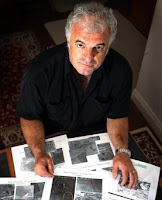
It might have nothing to do with chess. Or has it?
Last year I wrote a post of a former schoolteacher colleague, Lambis Englezos, an amateur historian who claimed to know the whereabouts of 173 Australian soldiers unaccounted for from WW1. They were in a paddock somewhere in France.
For 6 years Lambis’ investigations received ridicule from both the highest ranks of Government Departments, and journalists he’d harangue about his theory.
But with dignity, and patience, Lambis persisted.
During the week he was vindicated. Human remains from that paddock in France indicate the site is in fact a mass burial site from WW1- the largest grave uncovered since WW1.
Perhaps it was Nine News correspondent James Talia’s humble pie, or Dr Peter Stanleys, director of the Centre for Historical Research at the National Museum of Australia, admission of ‘egg on face’ that puts into perspective what a remarkable story this is.
Lambis persued his project, not for fame, or recognition, or money, but because, deep down he thought it was just the right thing to do. He had a moral purpose. And when human remains were discovered last week, he remained humble and decent when others would have shouted “I told you so”.
Persistence, resilience, planning, strategy, dignity, patience: sound familiar?
There's probably a lot you could write about this story. And no doubt others will. The most important thing to say is : Well done, Lambis.
Labels:
lifelong learning,
persistence,
planning,
strategy
28 May, 2008
This Learning Life 2- University of Bristol 19-21 June 2008
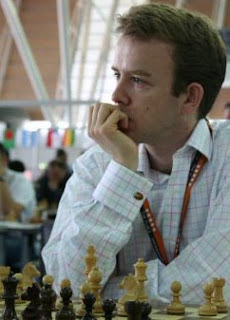
This Learning Life 2 Conference, held in Bristol UK, is for everyone who wishes education to provide all young people with a more powerful preparation for life in the 21st century.
The presumption is that current 'schooling' often develops a rather arcane and anachronistic set of learning skills and attitudes; and if education is in part a preparation for lifelong learning, richer models of learning might prove fruitful.
Jonathan Rowson is presenting a paper titled: Belonging to a Community that Loves to Think: Chess, Intellectual Character, and Social Capital and has kindly sent us the abstract of his presentation.
For those who know chess from the inside, there is little doubt that the game helps you educationally, but we seem to lack a compelling theory to explain why what is learned from chess might be transferable to other domains, and consequently we struggle to convince policy makers that chess might have an important role to play in improving formal education.
The conventional arguments are principally cognitive and largely intuitive, for instance chess improves your capacity to make informed decisions, shows you the rewards of planning ahead and reveals the importance of thinking about the opponent's intentions. While this may all be true, it fails to capture the uniqueness of chess (perceived difficulty, perpetual decision-making, absence of luck, responsibility, benign competitive context, established etiquette, clear rules etc)and the exclusively cognitive emphasis reinforces the stereotype of chess as something abstract and antisocial.
In my own experience, from learning the game as a five year old, to taking time off school to compete in competitions, to becoming British Champion in three consecutive years, the biggest benefit of chess has been the impact it has had on my attitude to thinking and learning, formed partly through the demands of the game, but also through diverse experiences of people, clubs, tournaments and travel opportunities that I would not otherwise have been exposed to.
This paper will examine chess from the perspective of what Harvard Educationalist Ron Ritchart calls Intellectual Character. The educational value of chess, I argue, is not that it gives you skills that may or may not transfer, or abilities that one may have to a greater or lesser degree, but that it helps to create and sustain intellectual character. Chess has to potential to slowly transform one's attitude, understanding and approach to one's own intellect, and thereby foster deep enduring dispositions about learning and thinking that can gradually become part of one's character. For instance, in my experience chess players, for all their faults and idiosyncrasies, are typically highly curious, enjoy working things out, reflexively think of perspectives other than their own, and deeply value the experience of concentration.
This kind of intellectual character is by no means exclusive to chess players, and can develop in various supportive and challenging contexts. However, I will argue that chess is a good example of how subcultures for tacit and informal learning are created, and will build on existing research on chess as a tool for building social capital (positive networks beyond the family and school) in deprived communities (Chess Development in Aberdeen Primary Schools: A Study of Literacy and Social Capital, A Scottish Executive Education Department Sponsored Research Project,Forest
et al, 2005).
The overarching aim of the paper is to use chess as an example of real-life learning that illuminates the relevance of intellectual character and social capital and highlights the importance of their relationship. I hope my paper will thereby help to illustrate the theme of the conference and not only show that many of our most formative learning experiences take place outside of the classroom, but use my experience with chess to explain why.
Labels:
education,
intellectual character,
lifelong learning,
thinking
21 May, 2008
Chess Squared goes to Maryborough

Students at Maryborough Education Centre , 45km west of Castlemaine, are fast becoming proficient chess players.
In term 1 our program developer, Harry Poulton, worked with Well-Being Officer Marg Gallagher to adapt the Chess-Squared Program to Years 3-4-5-6 students at Maryborough Education Centre, and the results were immediate.
Gallagher said: ‘The level of interest of even the youngest students has been astonishing and their skills acquisition has been most impressive. Chess builds resilience and supports students in important learning areas such as Mathematics and Wellbeing.’
'Many students have displayed excellent organisation and planning skills in a short space of time and their enthusiasm for the game has been sustained.'
Poulton observed: “It seems the MEC has a commitment to combining innovation and pastoral care into all programs to deliver quality education to students with diverse needs.”

Poulton has noted a direct relationship with the level of support from the classroom teacher and the success of the program in all schools he has worked in. The success, it seems, isnt just having a tutor, but the subtle messages the classroom teacher gives out. Their presence, and level of involvement, give students strong messages.
With help from the parents club, the school has recently acquired two large chess sets which are in great demand as a playground activity.
Labels:
classroom teacher,
numeracy,
resilience,
skill aquisition
07 May, 2008
Jonathan Rowson- an interesting thinker
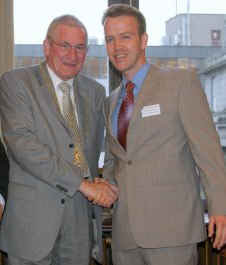
I first came across the work of Guy Claxton reading Sam Grumonts blog and thinkings about slow-learning. Two of Claxton’s more interesting ideas are i)that the mind needs to be given time to create meaning hence the phrase slow learning, and ii) that the modern maths curriculum has lost its way.
Almost serendipidously, we met Jonathan Rowson in Aberdeen last year. Interesting fellow Rowson.
Born in Aberdeen, he’s Scotlands 3rd chess grandmaster, has completed first class degree from Oxford, and is presently studying a Doctoral thesis on wisdom with Guy Claxton as supervisor.
So when Rowson talks about education, and learning, and where chess fits into that landscape his ideas are well worth consideration.
Rowson’s presentation from Aberdeen argued we need to keep grappling with the question “What’s so special about chess”, and his answer at present is based on the premise that thinking is the skill that enables us to acquire meaning. He asserts that chess offers the opportunity for people to make meaning through the consequences of their decisions.
Rowson goes on to explore the concept of engagement within a chess context and poses the question ‘where is the educational value the greatest’ within this framework.
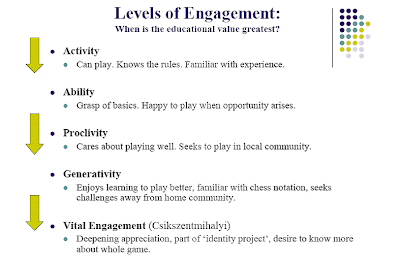
Rowsons presentation is certainly provocative and can be found here.
(photo above shows Jonathan Rowson (R) with the Lord Provost of Aberdeen(L) after announcing the Jonathan Rowson Award for all children of Aberdeen who pass a certain requirement.)
Labels:
CISCCON,
consequences,
engagement,
meaning,
thinking
03 May, 2008
2008 Begins
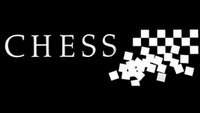
Before we knew it, 2008 was well and truly underway. As our ‘man-on-the-ground’ Sam Grumont has taken a coaching position in other parts Loddon, our link between the 12 schools is relying solely on e-mail. This will certainly make things challenging.
Our focus this year will be ‘whats happening in the classrooms’, and 'research perpsectives', and by the end of the year we want profiles from all of the schools, all of our tutors, and some insights into our research journey.
Harry and I are developing research projects, and will provide previews about what our research is about. By engaging in this on-line learning community you are participating in developing a form of data. Comments, contributions, and reflections, are all qualitative, valid forms of rich data called extant data.
So what you might ask? If you’re a teacher in Victoria you might (or might not) have noticed teachers are now mandated to have a documented 100 hours of professional learning every five years, and 50 of those hours have to have a research base, IF THEY ARE TO MAINTAIN THEIR TEACHER REGISTRATION. That’s a pretty radical shift in our working conditions, and one I haven’t heard too much discourse about on the coalface.
May I humbly suggest, participating in this project and joining in the conversation, may go towards meeting some of those criteria. I’ll explain in more detail in a future post.
On a slightly quirkier note, Thursday the 8th May sees the R-U-MAD (r u Making A Difference Day) being held at Castlemaine Secondary College, where the whole school community will be involved in examining the question: ‘what can you do to make a difference.?’
In Sydney, it also sees the launch of Chess: The Musical, held at Sydneys THEATRE ROYAL. No, I’m not mad and if you don’t believe me look here.
Let the game begin, and remember: white goes first!
Subscribe to:
Posts (Atom)